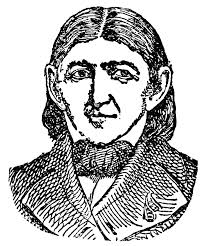The Enduring Legacy of Friedrich Froebel in Early Childhood Education

The Influence of Froebel on Early Childhood Education
Friedrich Froebel, a German educator, is widely regarded as the pioneer of modern early childhood education. Born in 1782, Froebel developed an educational philosophy that emphasised the importance of play, creativity, and hands-on learning for young children.
One of Froebel’s most significant contributions to early childhood education is the creation of kindergarten, which literally means “garden for children”. He believed that young children learn best through play and exploration in a nurturing environment. Kindergartens were designed to be places where children could engage in purposeful play activities that would stimulate their physical, emotional, and intellectual development.
Central to Froebel’s educational philosophy is the concept of “gifts” and “occupations”. Gifts were simple objects such as blocks, balls, and sticks that were given to children to encourage creativity and problem-solving skills. Occupations were activities like drawing, gardening, and storytelling that allowed children to express themselves and develop their imagination.
Another key aspect of Froebel’s approach is the belief that education should be holistic, focusing on the development of the whole child – body, mind, and spirit. He emphasised the importance of nature in education and encouraged outdoor activities to foster a connection with the natural world.
Today, Froebel’s influence can be seen in early childhood education practices around the world. His emphasis on play-based learning, hands-on activities, and holistic development continues to shape how we educate young children. Educators continue to draw inspiration from Froebel’s work as they strive to create engaging and enriching learning experiences for children in their formative years.
In conclusion, Friedrich Froebel’s innovative ideas have had a lasting impact on early childhood education. His emphasis on play, creativity, and holistic development has helped shape modern approaches to teaching young children and continues to inspire educators today.
Exploring Froebel’s Legacy: Six Key Principles of Play-Based Learning and Early Childhood Education
- Froebel believed in the importance of play-based learning for young children.
- He developed the concept of ‘kindergarten’ as a place for early childhood education.
- Froebel’s educational philosophy emphasised creativity, nature exploration, and hands-on activities.
- He introduced educational materials known as ‘Froebel Gifts’ to stimulate children’s learning through play.
- Froebel encouraged the development of fine motor skills through activities like weaving and folding paper.
- His approach laid the foundation for modern early childhood education methods.
Froebel believed in the importance of play-based learning for young children.
Froebel, a pioneering figure in early childhood education, firmly believed in the significance of play-based learning for young children. He advocated that through play, children not only engage in joyful exploration but also develop essential cognitive, social, and emotional skills. By incorporating play into educational settings, Froebel recognised that children could learn and grow in a natural and holistic way, laying a strong foundation for their future development and learning experiences.
He developed the concept of ‘kindergarten’ as a place for early childhood education.
Friedrich Froebel, a pioneering German educator, introduced the revolutionary concept of ‘kindergarten’ as a dedicated space for early childhood education. The term ‘kindergarten’, meaning “garden for children”, reflects Froebel’s belief in providing a nurturing environment where young children can engage in purposeful play and hands-on learning activities. By establishing kindergartens, Froebel emphasised the importance of creating a holistic educational setting that focuses on stimulating children’s physical, emotional, and intellectual development through play-based experiences.
Froebel’s educational philosophy emphasised creativity, nature exploration, and hands-on activities.
Froebel’s educational philosophy placed a strong emphasis on fostering creativity, encouraging exploration of nature, and promoting hands-on activities as essential components of early childhood learning. By incorporating these principles into his approach, Froebel believed in providing children with opportunities to develop their imagination, connect with the natural world, and actively engage in meaningful learning experiences that would contribute to their holistic development.
He introduced educational materials known as ‘Froebel Gifts’ to stimulate children’s learning through play.
Friedrich Froebel revolutionised early childhood education by introducing educational materials known as ‘Froebel Gifts’, which were designed to stimulate children’s learning through play. These simple objects, such as blocks, balls, and sticks, were intended to encourage creativity, problem-solving skills, and imagination in young learners. By incorporating play-based learning with these innovative materials, Froebel laid the foundation for a more engaging and effective educational approach that continues to influence early childhood education practices today.
Froebel encouraged the development of fine motor skills through activities like weaving and folding paper.
Froebel, the influential German educator, advocated for the enhancement of fine motor skills in young children through engaging activities such as weaving and paper folding. By incorporating these hands-on tasks into early childhood education, Froebel believed that children could not only refine their dexterity and coordination but also stimulate their creativity and cognitive abilities. This emphasis on tactile experiences and skill-building activities highlights Froebel’s holistic approach to nurturing young learners’ physical and cognitive development.
His approach laid the foundation for modern early childhood education methods.
Friedrich Froebel’s pioneering approach to early childhood education laid the foundation for modern methods in the field. By emphasising the importance of play, creativity, and holistic development, Froebel revolutionised how young children are educated. His focus on hands-on learning, purposeful play activities, and the integration of nature into education has had a lasting impact on early childhood education practices worldwide. Educators continue to draw inspiration from Froebel’s innovative ideas as they strive to provide engaging and effective learning experiences for young learners today.
